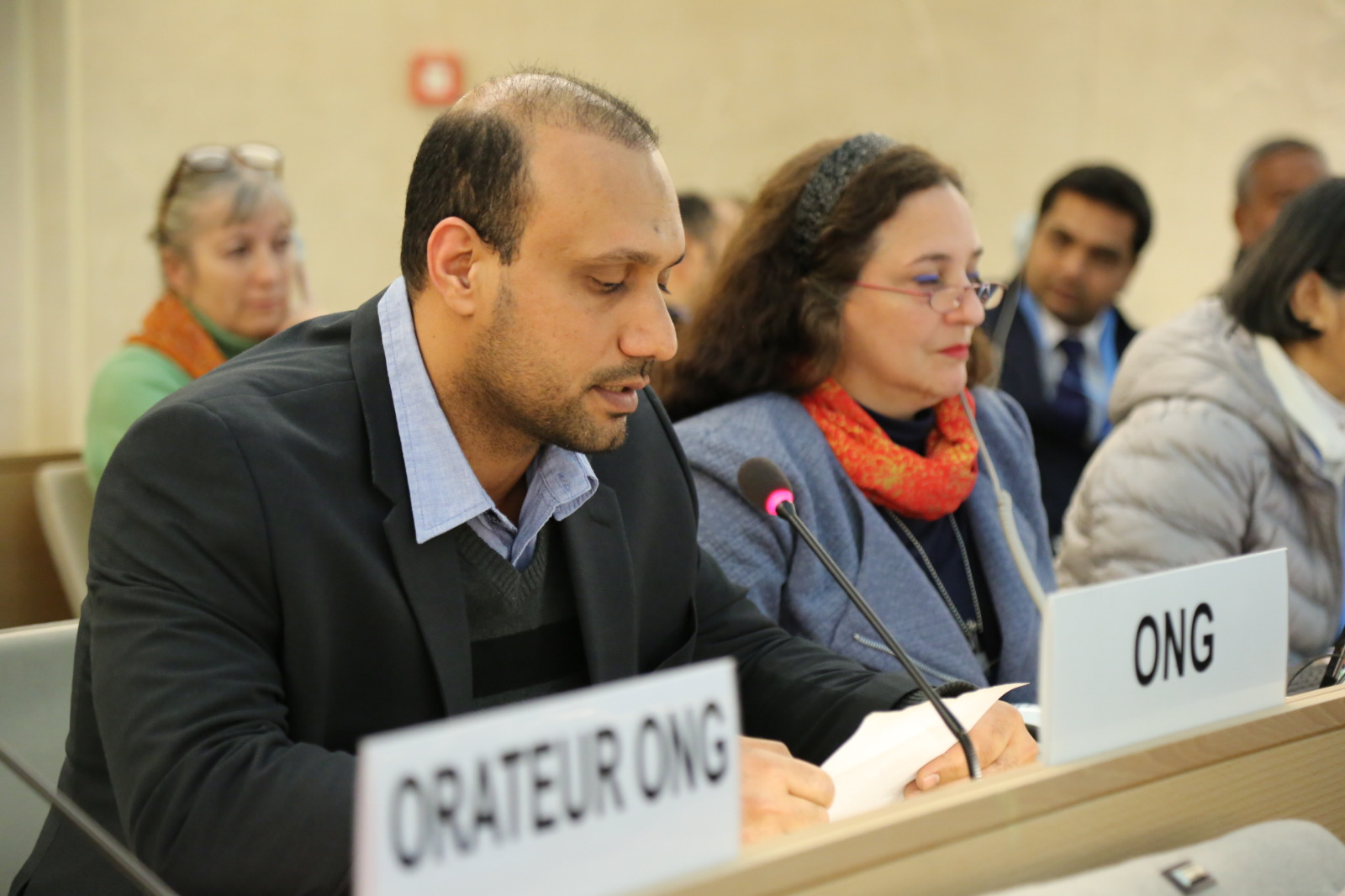On 7 March 2017, Jaffar Yahya delivered an oral intervention on behalf of ADHRB at the 34th session of the Human Rights Council. He participated in the Item 3 Interactive Dialogue with the Special Rapporteur on Freedom of Religion, delivering an oral intervention addressing the systematic discrimination against Bahrain’s majority Shia population. Please continue reading for full remarks or click here to download a PDF.
Mr. President,
Americans for Democracy & Human Rights in Bahrain would like to thank Rapporteur Shaheed for his report. We share his concerns over the targeted harassment, intimidation or discrimination of religious groups by government and non-State actors. We particularly agree with his assessment that, in many states, religious discrimination manifests in all areas of life, including in employment, education, and housing.
In Bahrain, for example, the government has intensified direct and structural forms of discrimination against the country’s majority Shia community. Most recently, the authorities launched a campaign of judicial harassment against at least 75 Shia religious leaders, including Sheikh Isa Qassem, the country’s most prominent Shia cleric. Sheikh Isa was denaturalized in June 2016 and now faces trial and possible deportation.
The country’s Shia community also faces long-running institutional discrimination in nearly every aspect of Bahraini society. Shia are disproportionally excluded from social services and public sector employment, and are effectively barred from senior positions in important government bodies, like the judiciary. The security apparatus virtually prohibits the recruitment of Shia, with the country’s majority population representing an estimated two percent of Bahrain’s military and police force.
We are concerned that such systematic forms of discrimination, including along religious lines, marginalize populations and divide societies. We therefore ask if there are measures that your mandate would recommend for effective steps states can take toward creating an environment that equally respects the rights of persons of all religions and beliefs, particularly in the public sphere?
Thank you.





